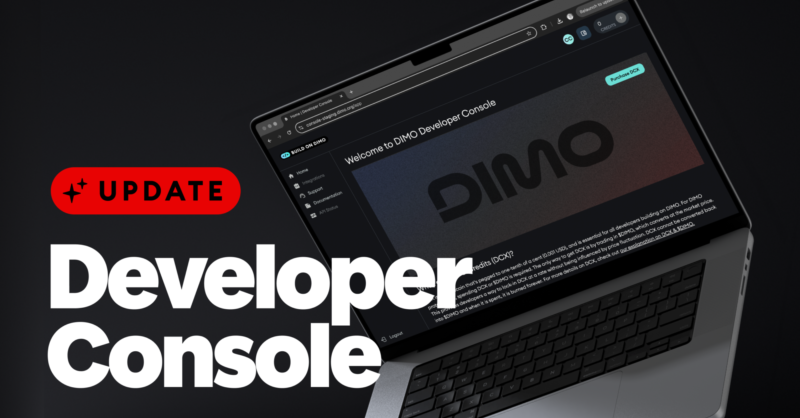DIMO Developer Console Upgraded to Version 1.0 with New Features

The DIMO Developer Console has recently undergone significant enhancements, marking its official upgrade to version 1.0. Initially launched in beta in August, the console provided developers with a self-service dashboard to create applications for vehicles. Feedback from EthOnline hackers in September played a crucial role in shaping the new features that have now been integrated. One of the most notable updates is the support for DIMO Global Accounts, which streamlines account management by allowing users to sign in with existing Google or GitHub accounts while automatically provisioning a DIMO Global Account. This improvement simplifies the onboarding process for both web3 and web2 developers, removing previous barriers to entry.
In addition to Global Accounts, the DIMO Developer Console has introduced DIMO Credits (DCX), a stablecoin currency that developers use to access vehicle data and perform protocol operations. The console now features a fiat on-ramp, enabling users to purchase DCX using debit or credit cards through an integration with Stripe. This addition makes it easier for developers to obtain the necessary credits for their projects, fostering a more accessible development environment. For those who prefer cryptocurrency, existing balances of $DIMO, $POL, or $WMATIC can still be utilized.
To further support developers, DIMO has continuously improved its documentation, offering expanded resources and guides for the latest APIs and SDKs. The introduction of the ‘Login With DIMO’ React component SDK simplifies the integration of authentication methods into applications, providing developers with customizable options for user login. DIMO aims to create an ecosystem reminiscent of the App Store’s impact on mobile computing, encouraging innovation and creativity in building applications that leverage the extensive vehicle data available on the DIMO network. With these advancements, the DIMO Developer Console is poised to empower developers in their quest to create groundbreaking automotive applications.
Related News





